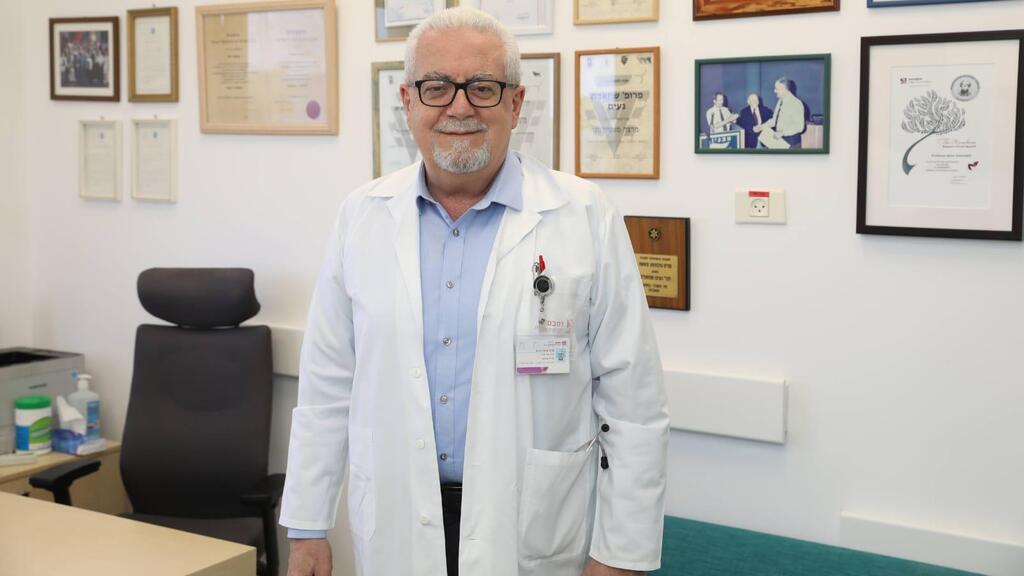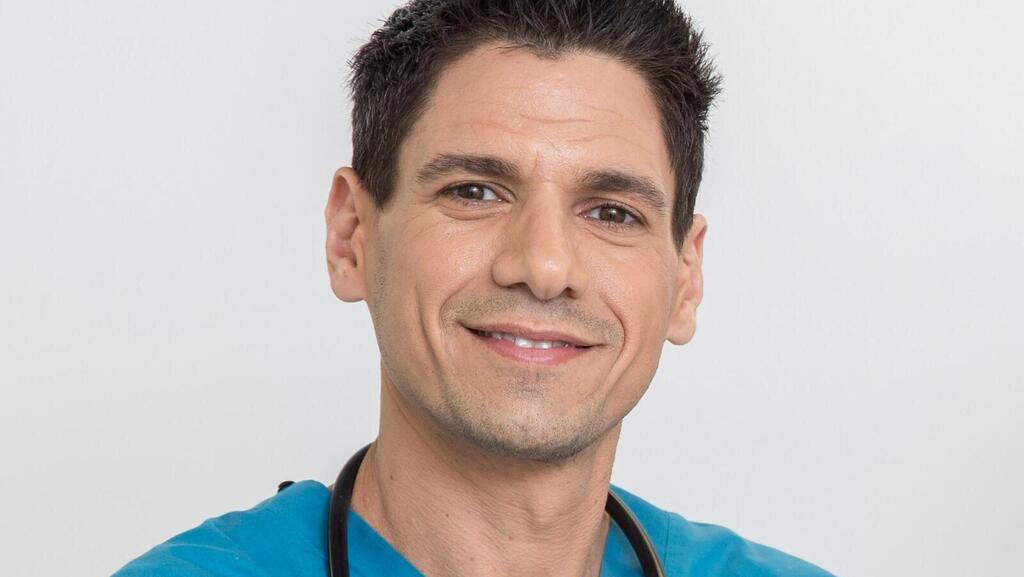Getting your Trinity Audio player ready...
Obesity is a modern pandemic that harms global health, according to experts. The World Health Organization (WHO) revealed last week that one in eight people worldwide suffers from obesity. The newly released data shows that, in 2022, over a billion people were classified as overweight across the globe.
More stories:
It was also reported that, since 1990, obesity has doubled among adults and quadrupled among children and youths up to age 19. Additionally, 43% of all adults carry around excess weight.
Two years ago many countries adopted the WHO’s plan to mitigate obesity. So far, about 31 governments are leading the way in lowering obesity rates by implementing the initiative.
The actions decided upon included: labeling harmful and fattening foods and beverages; education and promotion of public awareness of proper nutrition and physical activity; and support for breastfeeding. According to the WHO, obesity can lead to heart and vascular diseases, diabetes and various types of cancer.
Meanwhile, combating obesity has become a daily concern in Israel, as Dr. Sigal Sofer, a senior dietitian at Meuhedet Health Maintenance Organization (HMO), testifies. Due to the worrying prevalence of obesity, the health care provider created an obesity registry following its alarming rise.
"Today, 50% of our adults are overweight, and 22% are obese, which is more severe. Among youths, approximately 30% of those aged 12-18 suffer from excess weight, and 15% suffer from obesity, while 16.5% of children are overweight."
Dr. Sigal Frishman, the national dietitian at the Clalit HMO, agrees. “We’re ranked high worldwide, and it’s not very surprising because we eat Western food despite being in the Middle East," she explains.
According to Frishman, Israeli society is making fast food a habit as well as eating frequently outside the home, as well as bouts of emotional eating. "In difficult times like the ones we are currently experiencing, there is a strong tendency for emotional eating, or eating not due to hunger but in order to dull unpleasant emotions, which we’re all feeling since October 7."
"Over a quarter of the adult population in the country is obese. This is above the average of OECD countries, which isn’t very flattering for us."
According to Dr. Raz Hagoel, director of the Medical Center for Obesity Treatment, most of the world will suffer from obesity in the not-too-distant future, and its influence on the prevalence of diseases can be seen today. "If in the past we thought that obesity was associated with accompanying diseases, we can say today that it’s the origin of all disease," she said.
He adds that Israel leads the world in numbers of amputations due to diabetes, and notes that obesity is a direct cause of 18 types of cancer, as well as heart diseases, high blood pressure, deteriorating medical conditions, sleep apnea, and more. "We see the direct link of these to the issue of obesity."
Professor Naim Shehadeh, director of the Institute of Diabetes, Endocrinology and Metabolism at Rambam Health Care Campus, adds that Israel is defined as a country with a high obesity rate compared to the rest of the world.
Over a quarter of the adult population in the country is obese. "This is above the average of OECD countries, which isn’t very flattering for us," he said.
Shehadeh adds that the situation is even worse when it comes to childhood obesity. "The percentage of obese children in the country stands at 12%, while the OECD average is 10%, which is worrisome. Some 84% of obese children become obese adults, so it’s not right to say that it passes with time."
He further adds that obesity is the primary risk factor for associated illnesses: high blood pressure, diabetes, joint damage, respiratory conditions, sleep apnea, heart and vascular diseases, cancer, or death, and warns that these conditions can appear in the early stages of life in youth suffering from excess weight and accompany them for many years.
"They suffer from symptoms earlier than people with a normal BMI. Heart diseases, vascular diseases, or diabetes, which used to be seen mainly in adults, are now seen in children."
Hagoel says that Israel is seeing a significant trend in increasing obesity in the last five years, and raises concerns about the number of children who suffer from it. "These children become obese adults who will suffer from obesity and, among those youths suffering from obesity who reach adulthood, diseases appear earlier, and then their healthy years are shortened."
"They suffer from symptoms earlier than people with a normal BMI. Heart diseases, vascular diseases or diabetes, which used to be seen mainly in adults, are now seen in children," he added.
Dr. Sofer adds that, during the COVID-19 pandemic, patients at high risk or with higher mortality rates were those who suffered from obesity. "Obesity is associated with an inflammatory condition that occurs in the body, and this chronic inflammation leads to a lot of medical conditions."
Food abundance and screen time
Frishman explains that the abundance and convenient availability of food and restaurants offering deliveries is a direct cause of obesity.
"The more temptation approaches close to our home, the more we consume, and the less we expel. In other words, there’s no need to hunt and gather for food in our daily lives. We travel by car, look for the closest parking lot, and hardly move."
Dr. Frishman adds that we also move less when working in front of the computer, especially since the COVID pandemic, and so move even less. The situation is even more severe with youths. "You don’t play and meet outside anymore. We watch movies and play video games more than go outside."
Shehadeh adds that, today, children are locked on to swiping their screens and not playing and running outside. "This is an amazing change. Alongside the availability of food, a child can sit in front of the TV, consume 2,000 calories in a few hours, and then have a meal with a soft drink, which is a very serious threat."
He says there’s a significant correlation between the number of hours a child spends in front of the screen and obesity, as well as between the number of cups of sugary drinks they consume. "These are things that can be influenced and reduced, and it’s important to tax sugary drinks again," according to Hagoel.
He adds that socioeconomic disparities also play a significant role in relation to obesity rates, as people with economic difficulties find it much harder to finance and develop healthy habits. "The gap is widest among those with a low socioeconomic status. We see obesity occurring earlier, even among women when compared to women in higher socioeconomic positions, partly because they have more options to eat healthy.”
“Their awareness of nutrition increases according to these gaps as well, alongside exercise options such as gym access and the ability to purchase medical treatments for obesity that aren’t covered by Israel’s health basket," he added.
Frishman also addresses the issue, saying low socioeconomic sectors have less physical education awareness, compared to coveted working positions and jobs that are often equipped with personal gyms, encouraging employees to use them alongside promoting healthy eating.
Treatment starts with awareness and prevention
According to Sofer, the new treatment for obesity is divided into four layers: the first is prevention; the second is treatment for excess weight before it turns into obesity; the third is multifaceted treatment for obesity, including inspection by physicians, dietitians, physiotherapists, and other professionals help treat the condition; and the fourth layer is a last resort – bariatric surgeries.
There has been a noticeable decrease in the number of these surgeries In the past decade, after new weight loss drugs were introduced to the market.
Hagoel adds that bariatric surgeries aren’t a magical solution, and although there’s a certain decrease in the number of surgeries in the country, Israel is ranked high globally in the number of repeat surgeries following relapse in patients.
"This is a disease that needs to be treated according to the patients, and we have realized over the years that surgery is just the step – from there, one needs to adopt a healthy lifestyle and stick to it over time," he added.
Shehadeh argues that top priority should be given to healthy living and proper nutrition in schools – "which should be as mandatory as mathematics, history and physics. Children's health is the most important thing there is, and it’s not taught enough, it needs to become a very serious lesson for our children."
Frishman agrees, adding there should be education for exercising properly and proper nutrition, and also raises the issue of underdeveloped public transportation; because of that, most of Israelis drive instead of walking more or using buses and trains, resulting in obesity.
"Money and lives can be saved by preventing obesity and symptoms of other conditions related to it."
"Think about New York, London or Paris. There, people walk, unlike in Israel. There isn’t even basic public transportation in Israel’s periphery, everything is done by car, and you can see how this affects obesity."
Sofer says that some HMOs offer an online program which youths can join in order to promote a healthy lifestyle, including meeting with a doctor and a dietitian, and lessons on how to include more physical activity in their daily lives.
She notes the importance of treating childhood obesity, and says 50% of children living with excess weight will become adolescents living with obesity, and 80% of obese adolescents will turn into obese adults. "Many of them will live with obesity throughout their lives, and we’re more likely to treat this the better and more professional the treatment.”
Hagoel says Israel has no national plan to combat obesity, and the issue isn’t being considered seriously enough by officials. According to him, treating the early onset of obesity would also be more economically beneficial to the Health Ministry rather than treating the issue at a later stage that includes underlying medical conditions.
"Money and lives can be saved by preventing obesity and symptoms of other conditions related to it," he says.









